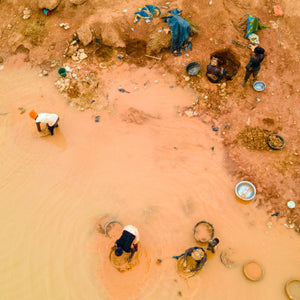Solar Power in Africa: Overcoming Energy Challenges
Across Africa, the limited availability and reliability of electrical power continues to be a serious issue. Despite progress in some areas, a substantial number of people on the continent still lack access to electricity, especially in rural and remote areas. Could solar energy be the answer?
Solar energy has the potential to provide affordable, reliable, and sustainable electricity to millions across Africa. We explore how this transformative clean energy source could be the key to unlocking a brighter future for the continent.
The current state of electricity in Africa
Electricity in Africa presents a landscape of stark contrasts. While urban areas are often electrified, rural regions languish with limited access. 600 million people, a massive 43% of the total population, lack access to electricity, with most of them living in sub-Saharan Africa. 80% of those who are deprived of electricity live in rural areas.

This disparity seriously impedes development and prosperity in the region, and perpetuates a deep socio-economic divide. The shift towards clean energy in Africa, particularly solar power, offers a sustainable solution to bridge this gap, heralding a new era of energy independence and economic growth.
The potential of solar energy in Africa
According to the World Bank, Africa has the world’s greatest solar energy potential. The continent's geographical location makes it well suited to various forms of renewable energy, but its proximity to the equator and significant amount of dry, sunny days make it especially ideal for solar power.
Africa is home to 60% of the best solar resources in the world. However, it currently only has 1% of installed solar PV capacity.
Why? Off-grid, solar energy solutions, like solar divides and solar home systems, have high up-front costs that make them largely unattainable to low and middle-income households. Larger, countrywide projects are often disregarded in favor of cheaper fuel solutions.

Despite this, solar energy is an incredibly viable and sustainable resource. This untapped potential could revolutionize energy access across the continent, acting as a catalyst for education, healthcare, and economic activities. The key to unlocking a brighter, solar-powered future: investment (and a lot of it).
Solar projects and development
In recent years, there has been a surge of renewable energy projects in Africa. One project, ENGIE Energy Access, offers pay-as-you-go solar energy to offgrid African residents. This approach makes basic electricity more accessible to remote communities, as they don’t have to bear the substantial upfront costs of the solar system, i.e. solar panels and battery storage.
Another company, Karm Solar, pioneered a solution for remote farmers that involves building wells with water pumps powered by solar energy, rather than diesel generators. This infrastructure can be repaid by clients over a 25-30 year window, making it a more accessible choice for lower income agricultural households. Karm Solar are also now an independent power producer, meaning they can sell the electricity produced from their off-grid solar station.

Funding sustainable change
The growth of solar energy in Africa is supported by various renewable energy grants and funds. International collaborations and financial aid are crucial, providing the impetus for large-scale adoption of solar solutions. These funds are not just monetary injections but are seeds sown for a greener, more sustainable African energy landscape.
The International Energy Agency predicts that Africa could achieve universal energy access by 2030 through a yearly investment of $30 billion. By that time, 90% of total energy would come from renewable sources, including solar, hydroelectric, and geothermal.
The potential of renewable energy in Africa is luminous and promising.
The future of solar power in Africa
Solar energy in Africa is more than a mere alternative to conventional power; it's a potentially transformative force. It stands at the crossroads of environmental sustainability and socio-economic development, promising a future where all Africans have access to reliable, clean, and affordable energy. The journey towards this bright future is underway, and the prospects are as radiant as the African sun.


